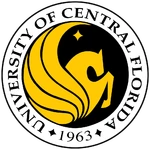| Proficiency in English | IELTS ≥ 5.5, TOEFL ≥ 75, CEFR ≥ B2, or equivalent. |
| Eligibility criteria: |
High school certificate.Maximum 3 years after high school graduation.
Minimum average grade (CGPA) >60% in each entry subject. |
| Transcript requirements: |
Obtain a suitable transcript from your school.
If unavailable, provide official translations and verified copies of the original documents. |
| Accepted languages: | English / Russian. |
| Document legislation: |
The documents must be legalised (Apostille) by the Ministry of Foreign Affairs of the country where the documents were issued.
This requirement does not apply to the EU and Belarus, Ukraine documents.
|















 virtual tour
virtual tour